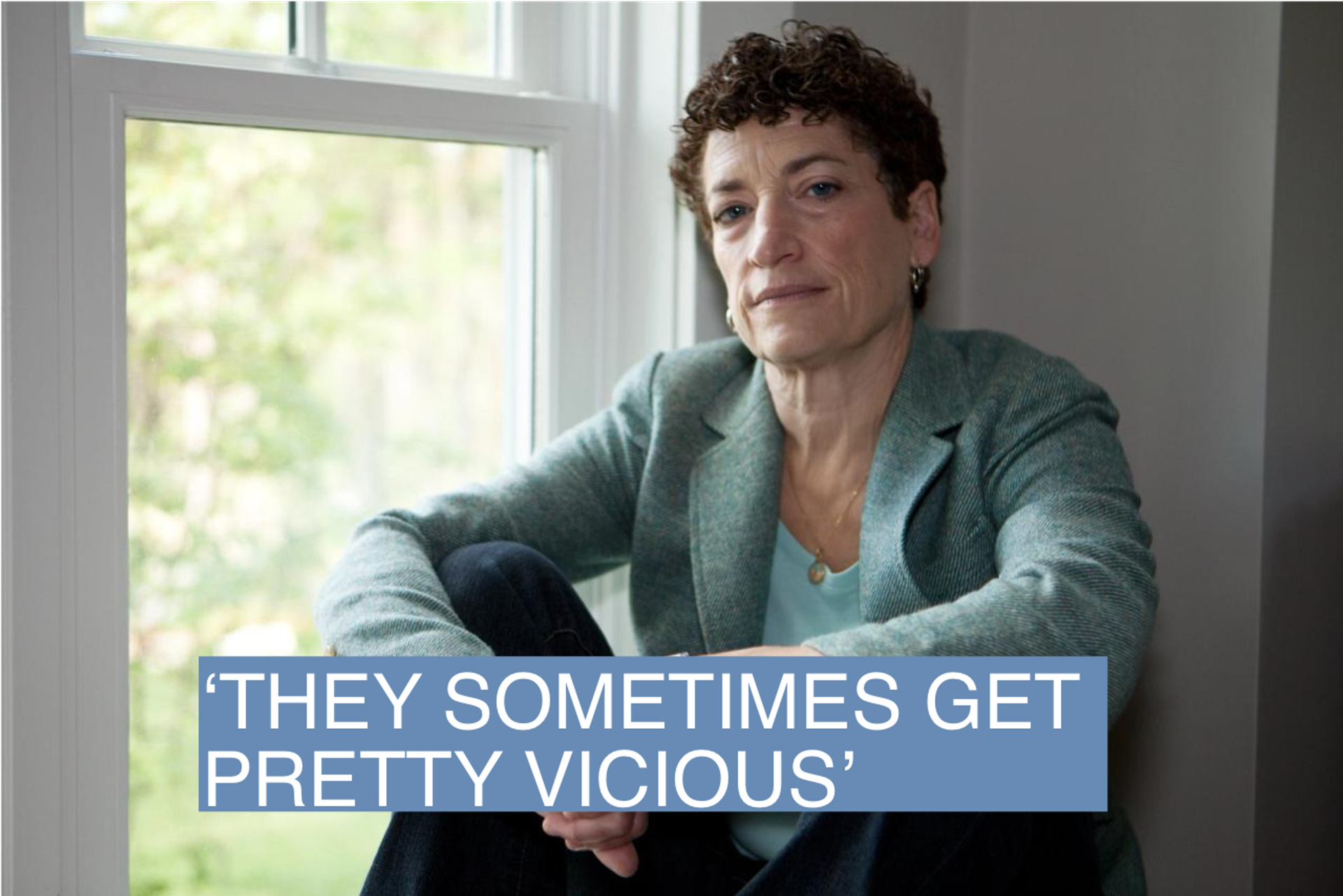The News
Harvard University science historian Naomi Oreskes was one of the first researchers to systematically investigate what fossil fuel companies knew about climate, when they knew it, and what they did to cover it up. Her 2010 book Merchants of Doubt, co-authored with Erik M. Conway, drew disturbing links between the PR strategies of Big Oil and Big Tobacco. Her latest, The Big Myth, also written with Conway, was published last month, and probes deeper into why anti-science propaganda has been so effective at permeating U.S. public policy.
The Q&A
Tim: You’ve built a body of work on oil company misinformation. How does your new book build on that?
Oreskes: The new book is a kind of prequel to Merchants of Doubt. When Erik Conway and I wrote that, we wanted to understand why intelligent people would reject hard-won evidence from science. And the answer we found was market fundamentalism. It was an ideological commitment to the idea of free market capitalism as a protection against a descent into Soviet-style totalitarianism.
So the new book is a history of free market propaganda in politics, academia, and popular culture. We show how the business community in the early 20th century started to develop a propaganda framework to push back against government responses to market failures and the social costs of capitalism, and brought it into mainstream American politics.
Tim: Where does that story intersect with fossil fuel companies and climate issues?
Oreskes: Climate change is fundamentally rooted in being unwilling to accept the reality of market failure. This is a problem that has developed when companies, operating legally, sell a product that has huge external costs. The market system we operate under doesn’t really have a means of preventing this damage. Many of the people who don’t want to accept the reality of climate change, it’s because they don’t want to accept that capitalism has failed so extravagantly. When I first published my 2004 article on the scientific consensus on climate change, which was the first peer-reviewed article to quantify the consensus, I was accused of being a Stalinist. And I remember thinking, wow, that’s really nuts.
Tim: So what’s your view of carbon pricing or other potential market-based remedies to the external costs problem?
Oreskes: Market-based mechanisms definitely can work. We use them to greatly decrease the amount of tobacco use in the United States, to address acid rain and air pollution and they did not lead to us living in Soviet-style totalitarian or in caves or something.
But when the fossil fuel industry had the opportunity to embrace a market-based mechanism to address climate change, specifically the Waxman-Markey [carbon cap and trade] bill, almost none of them did. Almost no Republicans voted for it. So this makes you wonder, was that all just an excuse to pretend that you would support climate action if it was market-based? And now we have fossil fuel companies that claim they want to be part of the solution. But if you actually look at their actions, they don’t support that claim.
Tim: How have you seen climate misinformation from the fossil fuel industry change over time?
Oreskes: Well, I feel very sad, because we’ve had a gigantic missed opportunity to address this problem before it was too late. We had the Earth Summit in Rio de Janeiro in 1992. We talk a lot about how long it takes for an important new transformative technology to infiltrate the marketplace, and the answer is about 10 to 30 years. So here we are now 30 years later, and if we had actually started working on this problem, we could have more or less fixed it by now. If you ask why that didn’t happen, I don’t want to be overly simplistic but I think it’s clear that the fossil fuel industry disinformation and obstruction is a big part.
We are moving in the right direction. But we are nowhere close to where we need to be, and disinformation continues to be widespread. All of these companies are continuing to develop new sources of oil and gas, even as we speak. And that is simply not consistent with accepting the scientific evidence.
We’re in a race between the energy transition and massive climate disruption. The jury’s out as to which of those happens first. We cannot be complacent about this. For example there’s still this myth that if you let the government decide whether or not you can have a gas stove in your home, we’re on a slippery slope to socialism. And if you see those ads, you might not know that they’re funded by the gas industry. The fossil fuel industry is really fighting for its life. And when people are fighting for their lives, they sometimes get pretty vicious.
Tim: Your work has informed Congressional investigations of what oil companies knew about climate change and when. What else should Congress be looking for? Do you have a white whale, some smoking gun document you’re still trying to find?
Oreskes: No, because I think the white whale metaphor is exactly right. It’s a big mistake for a historian to become obsessed with a specific document. I think that’s kind of missing the point. But I think Congress has the potential, with the power of the subpoena, to really show the American people what this industry has done. My biggest concern right now is that people will fall for promises that the industry can’t deliver on.
